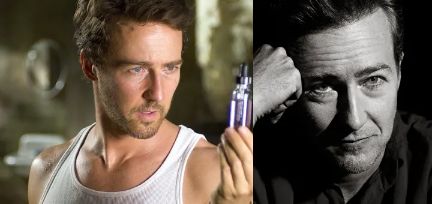Edward Norton: Shaping Cinematic Excellence Through Versatility and Creative Depth
2 min read
21 Jun 2024
Edward Norton, renowned for his exceptional acting skills and versatility, has left an indelible mark on the world of cinema through a career characterized by captivating performances, thought-provoking roles, and a deep involvement in the creative process. Over the years, Norton has earned acclaim as an actor, director, and producer, solidifying his position as one of the most respected figures in the film industry.
Norton was born on August 18, 1969, in Boston, Massachusetts, and raised in Columbia, Maryland. His passion for acting was ignited at an early age, and he pursued it with fervor, participating in school plays and immersing himself in the world of theater. This passion would later blossom into a full-fledged career that spanned multiple genres and garnered critical acclaim.
Norton's breakout role came in 1996 with "Primal Fear," where he starred alongside Richard Gere. His portrayal of Aaron Stampler, a young altar boy accused of murder, showcased his ability to seamlessly embody complex characters. Norton's performance earned him an Academy Award nomination for Best Supporting Actor, marking his arrival on the cinematic scene with a resounding impact.

In the same year, Norton starred in "The People vs. Larry Flynt," further solidifying his reputation as an actor capable of tackling diverse roles. His portrayal of lawyer Alan Isaacman demonstrated his versatility, as he effortlessly shifted from the reserved Aaron Stampler to the charismatic, sharp-witted attorney.
Norton's dedication to his craft was evident in his next significant project, "American History X" (1998). Not only did he deliver a powerhouse performance as Derek Vinyard, a former neo-Nazi trying to prevent his younger brother from following the same path, but he also delved deep into the production process. Norton's commitment extended beyond acting, as he reworked the script and collaborated closely with director Tony Kaye to shape the film's powerful narrative. His transformative performance earned him his second Academy Award nomination, this time for Best Actor.
In 1999, Norton starred in "Fight Club," directed by David Fincher and based on Chuck Palahniuk's novel. The film gained a cult following for its subversive themes and intricate storytelling. Norton's portrayal of the unnamed protagonist, struggling with the monotony of modern life, highlighted his ability to navigate complex psychological territory.
Norton's filmography continued to expand as he took on roles that pushed boundaries and challenged norms. He showcased his comedic timing in "Keeping the Faith" (2000), a romantic comedy where he also made his directorial debut. This marked the beginning of Norton's involvement behind the camera, which would become another dimension of his cinematic journey.
In 2002, Norton starred in "25th Hour," directed by Spike Lee. His portrayal of Monty Brogan, a man facing a seven-year prison sentence, captivated audiences with its raw emotion and vulnerability. This collaboration with Lee demonstrated Norton's commitment to working with visionary directors and his ability to bring authenticity to his characters.
Norton's affinity for delving into intricate narratives was evident once again in "The Illusionist" (2006), where he starred as a mysterious magician. His enigmatic performance added depth to the film's themes of illusion, reality, and romance.
In 2014, Norton's role in "Birdman" showcased his ability to seamlessly blend into an ensemble cast while delivering a memorable performance. The film, directed by Alejandro González Iñárritu, explored the life of a faded Hollywood actor attempting to revive his career. Norton's portrayal of a method actor added a layer of meta-commentary on acting itself, earning him an Academy Award nomination for Best Supporting Actor.
Norton's involvement in cinema extended beyond acting and directing. He demonstrated his producing acumen in films like "Down in the Valley" (2005) and "Leaves of Grass" (2009). His dedication to storytelling also led him to adapt novels for the screen, such as "Motherless Brooklyn" (2019), where he starred, wrote, and directed. The film showcased Norton's commitment to bringing intricate narratives to life.
In addition to his artistic contributions, Norton is known for his advocacy in environmental and social causes. His engagement with these issues reflects a commitment to making a positive impact beyond the realm of cinema.
In conclusion, Edward Norton's movie career is a tapestry woven with complex characters, transformative performances, and an unwavering dedication to his craft. From his breakout role in "Primal Fear" to his multi-faceted involvement in projects as an actor, director, and producer, Norton's journey has been marked by versatility, creativity, and a deep exploration of human emotions. Through his cinematic endeavors, he has not only left an indelible mark on the world of film but has also inspired audiences and peers alike with his commitment to authentic storytelling.
More Articles

Metallics, Holographics, and Space-Age Fabrics: Materials for Space-Themed Fashion
5 min read | 17 Jul 2024

Futuristic Space Clothing and Accessories: A Cosmic Style Exploration
6 min read | 16 Jul 2024

Incorporating Queen-like Elements into Everyday Outfits for an Aristocratic Touch
3 min read | 15 Jul 2024